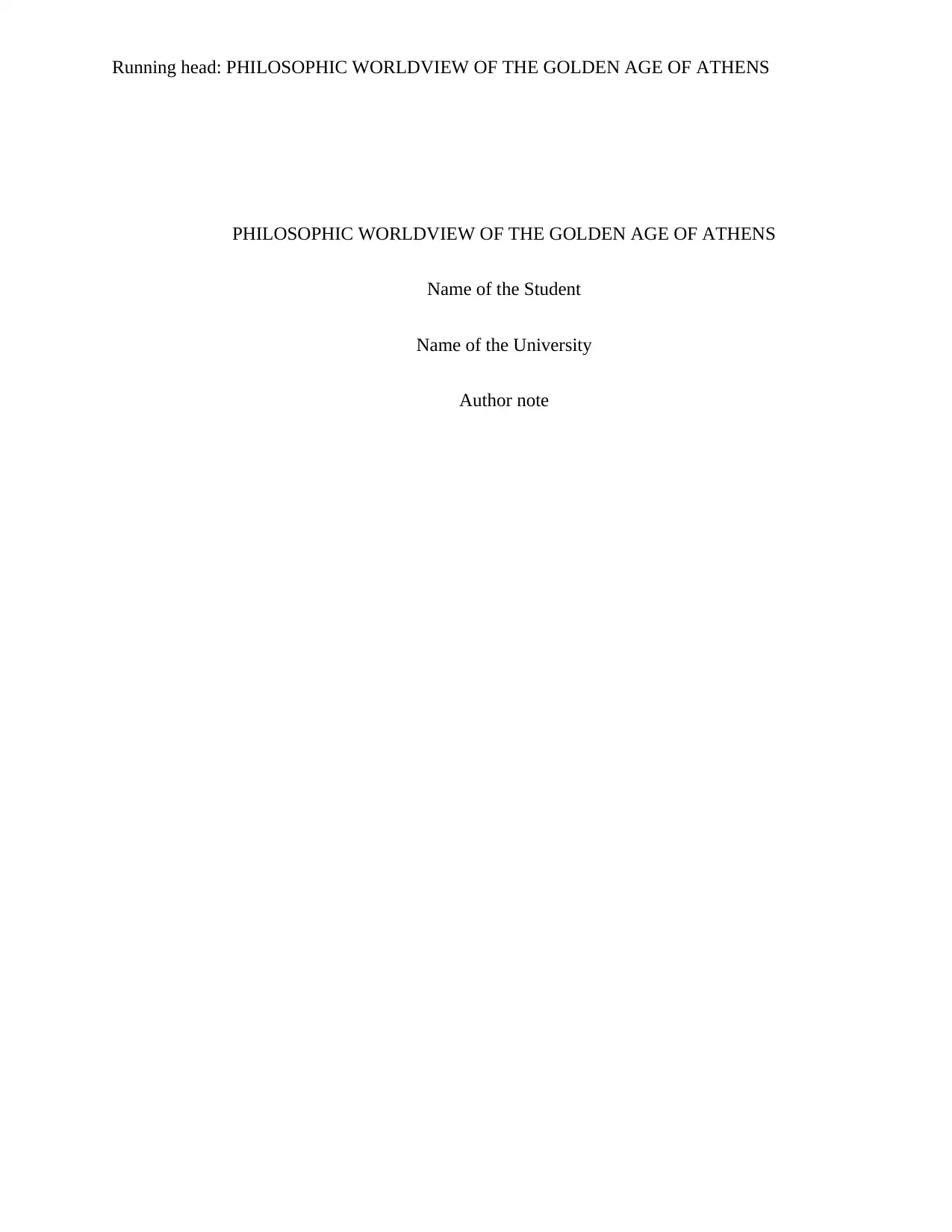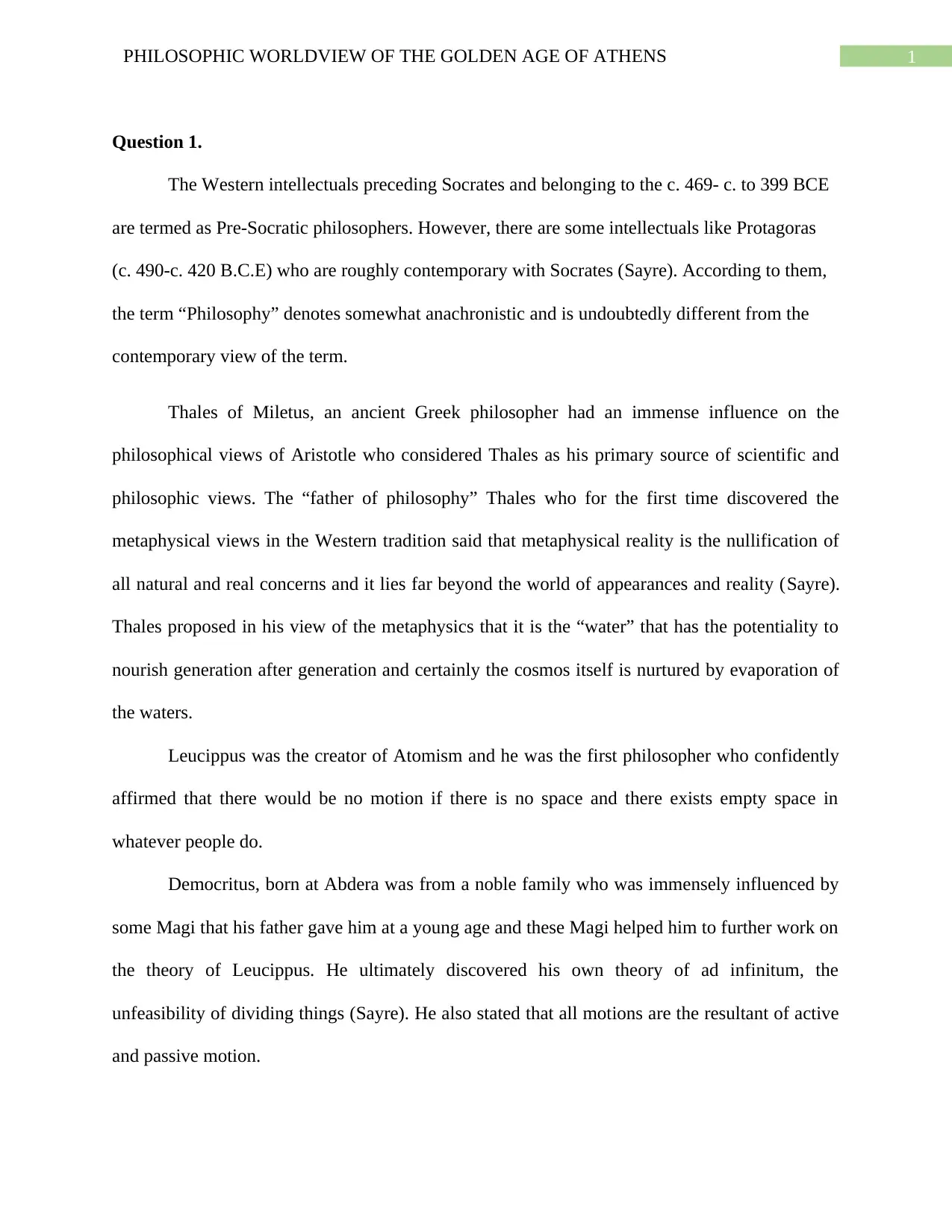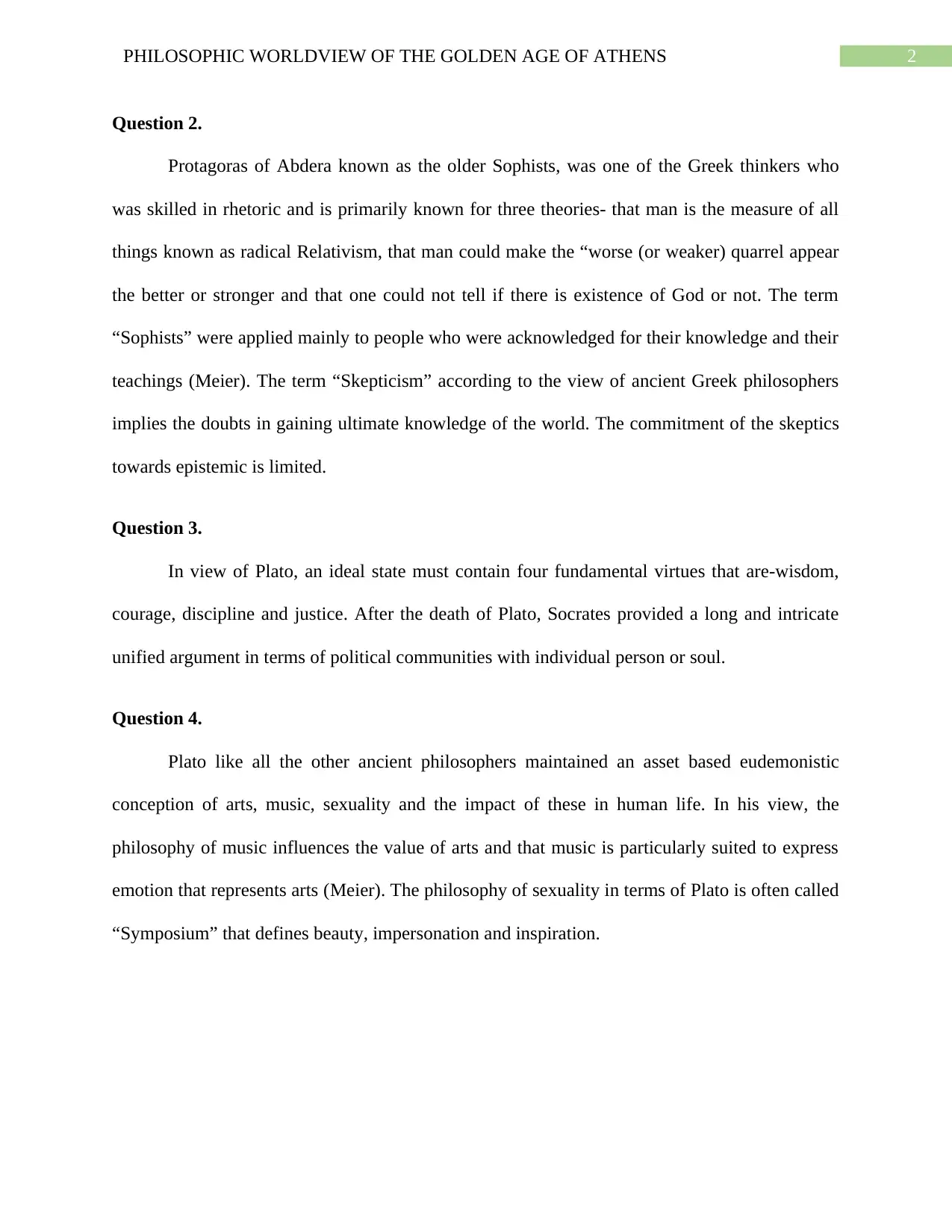The Philosophic Worldview of the Golden Age of Athens: An Analysis
VerifiedAdded on 2020/04/21
|4
|655
|70
Essay
AI Summary
This essay delves into the philosophic worldview of the Golden Age of Athens, examining the contributions of key thinkers such as Thales, Leucippus, Democritus, Protagoras, Socrates, and Plato. It explores the Pre-Socratic philosophers and their impact on the philosophical landscape, as well as the concepts of skepticism and the ideal state. The essay also discusses Plato's views on music, arts, and sexuality, highlighting their significance in human life. The analysis covers the evolution of philosophical thought during this era, providing insights into the ideas and influences that shaped the intellectual environment of ancient Athens. The essay references Meier and Sayre to support the arguments and provide context to the historical and philosophical discussions.
1 out of 4





![[object Object]](/_next/static/media/star-bottom.7253800d.svg)